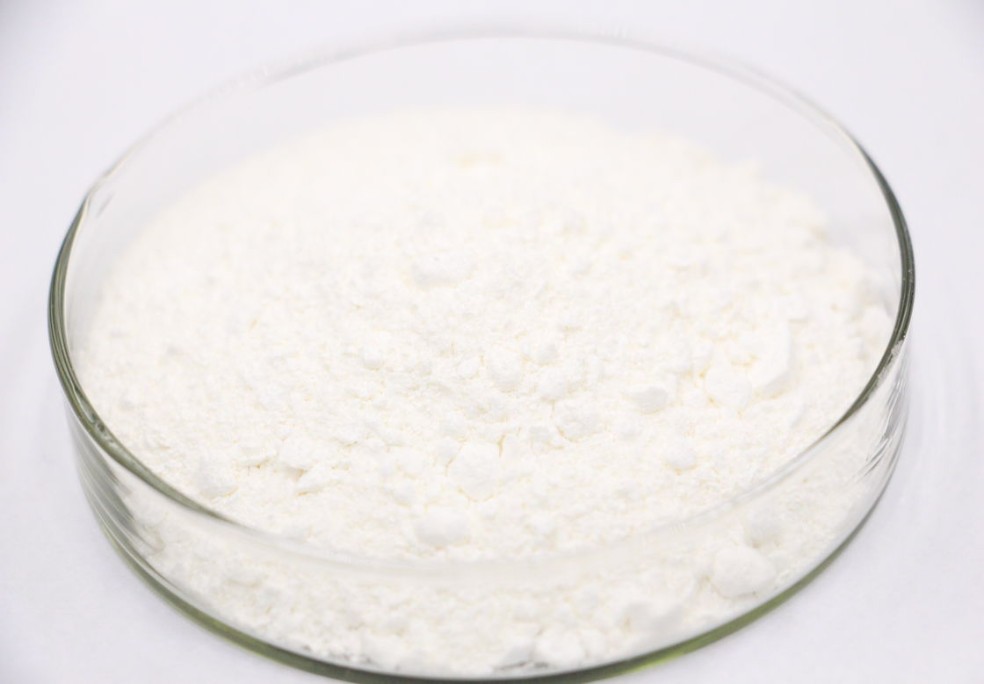CAS: 168273-06-1
Molecular formula: C22H21Cl3N4O. ClH
Molecular weight: 500.25
Appearance: White or almost white crystalline powder
Purity: ≥ 99% by HPLC
Melting Point: 272.25 ℃
Usage: Pharmaceutical intermediates, fine organic synthesis and catalyst, health care products etc
Rimonabant (Acomplia) was the first in a new class of therapeutic agents called Cannabinoid-1 Receptor Blockers (CB1). Acomplia was studied for use in the treatment of obesity and related conditions.
An experimental wonder drug, Rimonabant, helps you lose weight, quit smoking and it also helps protect your heart. Trials have shown that 33% of people on Rimonabant lost 10% of body weight and kept their weight down for two years - this is a record, no other diet drug has managed to keep a person's weight down for so long. The second 33% lost 5% of body weight and kept it down. As well as keeping you lean, the drug also helps you quit the smoking habit. This will be of great interest for many smokers who are afraid to give up because they say they will put on loads of weight if they do.
Rimonabant has also been shown to be a μ-opioid receptor antagonist (possibly the contributing factor in its reported dysphoric qualities).Its main effect is reduction in appetite.
1. Obesity:
In a 2006 (2 year) study reported in JAMA, "Compared with the placebo group, the 20 mg of rimonabant group produced greater mean (SEM) reductions in weight (-6.3kg vs -1.6kg; P<.001), waist circumference (-6.1cm vs -2.5cm; P<.001), and level of triglycerides (percentage change, -5.3vs 7.9; P<.001) and a greater increase in level of high-density lipoprotein cholesterol (percentage change, 12.6vs 5.4; P<.001)."
2. Smoking cessation:
Rimonabant may also be found to be effective in assisting some smokers to quit smoking. Sanofi is currently conducting studies to determine the possible value of rimonabant in smoking-cessation therapy. The Studies with Rimonabant and Tobacco Use (STRATUS) program involves more than 6,000 subjects.
STRATUS is designed to explore two smoking-related therapies: first, to use rimonabant directly to aid in smoking cessation; second, to help prevent weight gain in former smokers. Initial results apparently suggest rimonabant is effective for both uses. However, the FDA has explicitly stated to Sanofi that, without additional studies, rimonabant cannot be approved in the United States for smoking cessation therapy.
| Items of analysis |
Specification |
Results |
| Assay by (HPLC) |
99%-101% |
99.43% |
| Appearance |
White to off White powder |
Complies |
| Odor and taste |
Odorless |
Complies |
| Identification |
Positive reaction |
Complies |
| Mesh size/sieve analysis |
100% pass 80 mesh |
Complies |
| Loss on drying |
1% Max |
0.78% |
| Water |
≤2.0% |
0.1% |
| Residue on ignition |
01% Max |
Complies |
| Melting point |
272.25 ℃ |
Complies |
| Boiling point |
627 .69 ℃ |
Complies |
| Refractive Index |
N20O1.67 |
Complies |
| PH |
50-7.0 |
6.5 |
| pK Values |
pK. 11.31(Predicted). pK„ 3. 22 (Predicted) |
Complies |
| Solubility |
Soluble in ethanol (-20 mg/ml). DMSO (25 mg/ml) .DMF (-20mg/ml). and water (< 1 mg/ml) |
Complies |
| Heavy Metals |
NMT 10ppm |
Complies |
| Microbiological Control |
78cfu/g |
78cfu/g |
| Total Plate Count |
1000 cfu/g Max |
Negative |
| Fungi |
<100/g |
Negative |
| Salmonella |
Negative |
Negative |
| Coll |
negative |
negative |
| Conclusion |
Qualified |






















